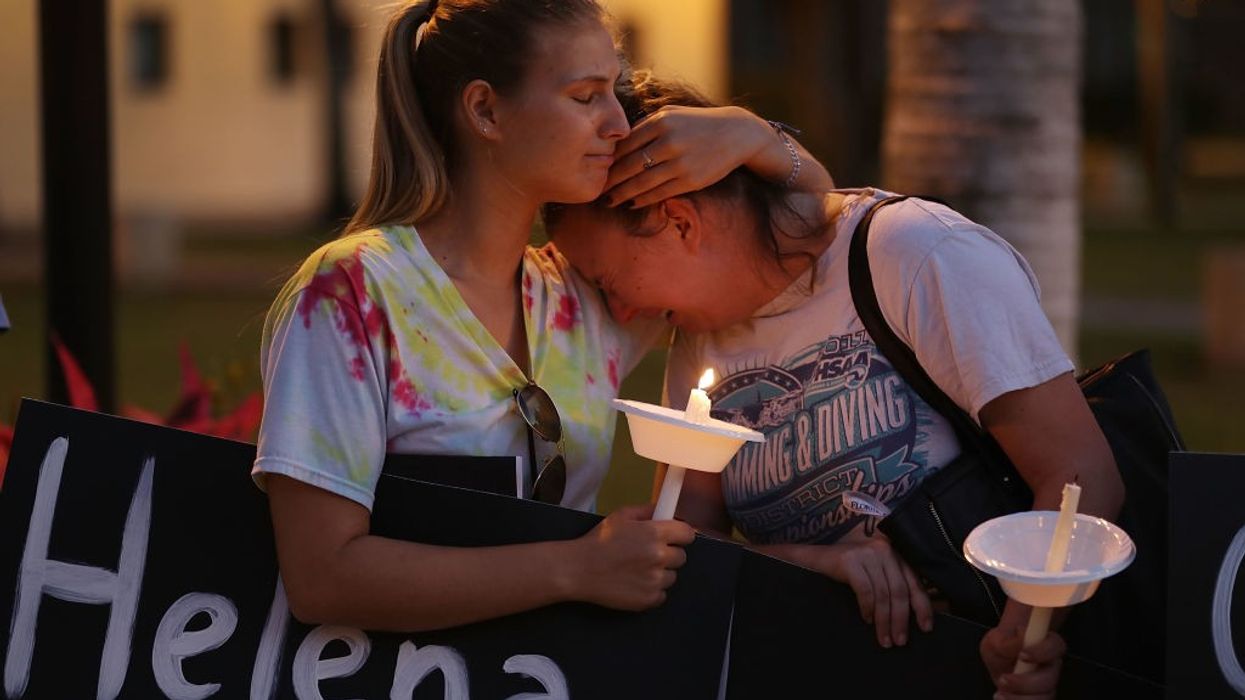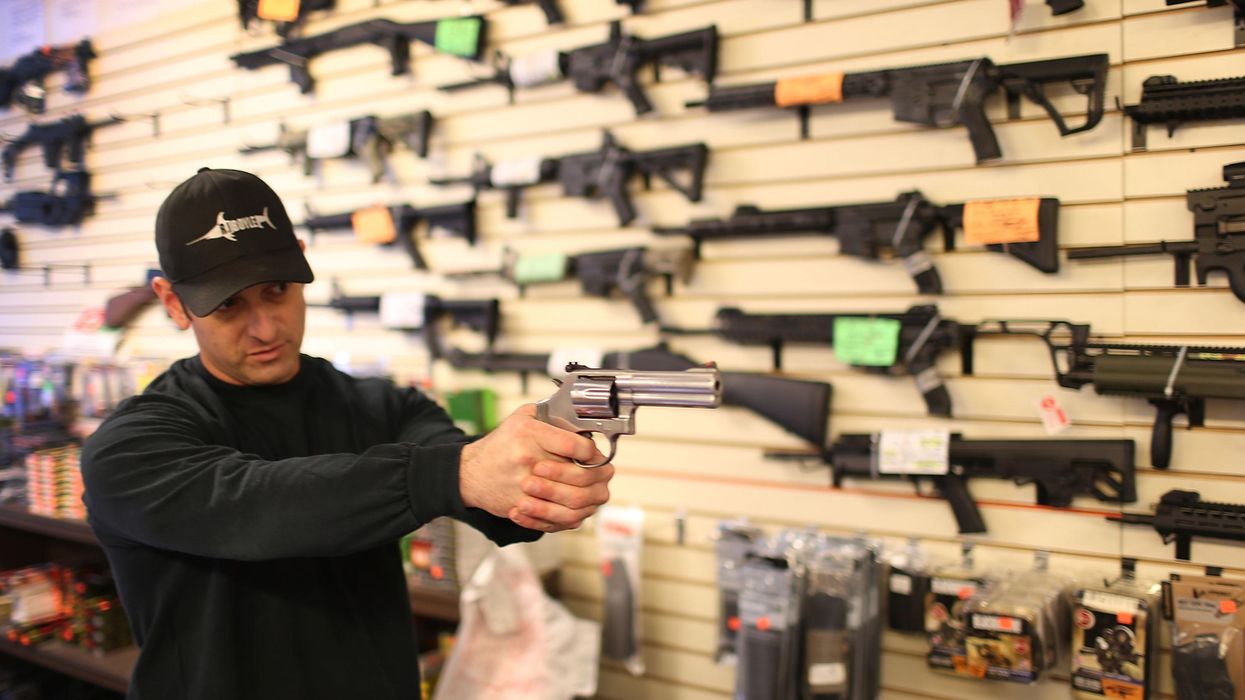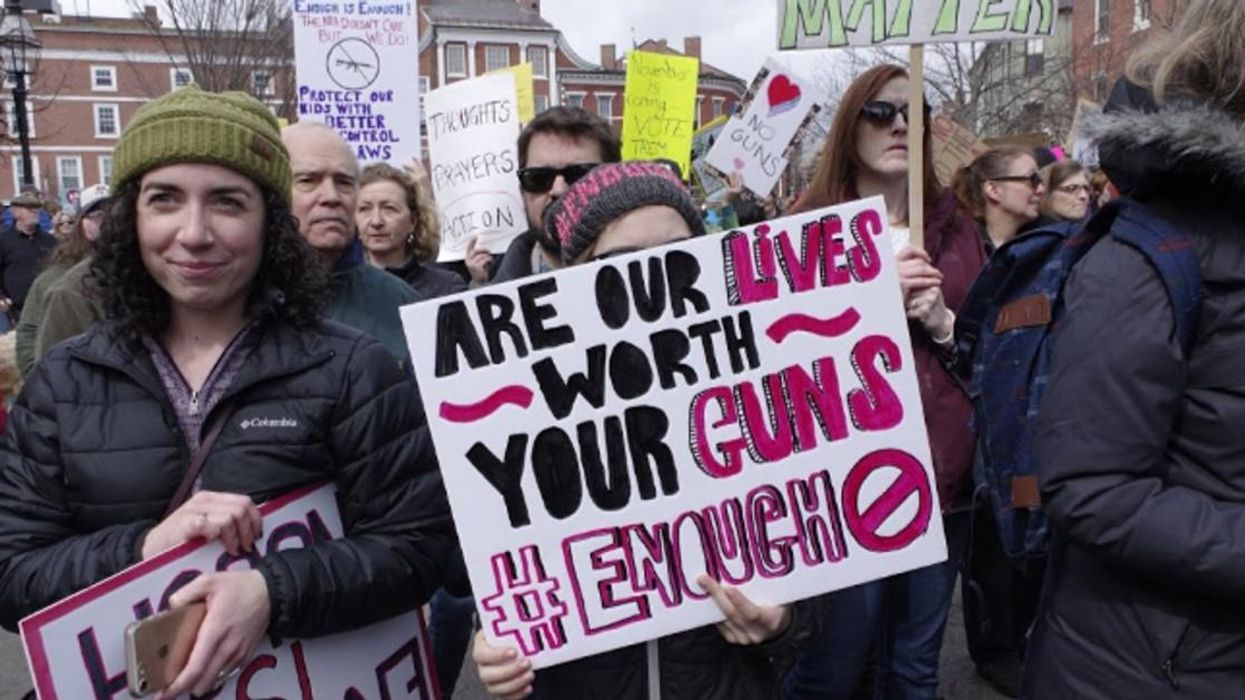The U.S. by far leads the world in gun ownership per capita, with a rate of 121 guns per 100 people. With under 5% of the world’s population, the U.S. has 40% of the world’s civilian-owned guns. Among our peer countries, Canada is second with 35 guns per 100 people, or roughly one-third our rate. But note this big difference: Canada suffers just over two gun-related deaths per 100,000 while our rate is 11 deaths. Closely following Canada in number of guns owned are Finland, Iceland, Norway, and Switzerland. All have fewer than three gun-related deaths per 100,000 people. That’s almost a quarter of our rate.
Since the solution to gun violence goes well beyond addressing mental health, let’s begin with the most basic gun reforms advocated by the Democratic Party: strengthening background checks and keeping guns out of the hands of those with a history of violent crime.
Our country is also plagued by mass shootings—defined as the killing or injuring of four or more. By this measure, in 2023 America experienced almost two a day—totaling more than 650 such shootings.
Among the young in America—those 1 to 17—more now die from firearms than by any other type of injury or illness; and this death rate doubled in just eight years, from 2013 to 2021. And Black, Latino, and Indigenous people in the U.S. are more than 10 times, more than two times, and nearly 3.5 times (respectively) to die of homicide by firearms compared with whites.
So, what are possible solutions?
We can start by seeking lessons from our peer countries.
In Canada stricter gun control includes a ban on civilian ownership of automatic weapons. Handguns require a permit that is issued only on a temporary basis, and only for gun-club members and gun collectors and anyone demonstrating a need for self-defense purposes. Magazine capacity is limited to 10 rounds. Purchase of rifles and shotguns requires an official certificate and involves a 28-day waiting period. Purchase is denied to people with certain criminal histories or who have mental-health disorders associated with violence. Canada also has “red flag” laws, where an emergency prohibition can be issued for anyone judged to be a danger to themselves or others.
In Finland, gun ownership requires a license and registration, an aptitude test for the license, and a minimum age of 20. Guns can only be carried for a specific purpose, and gun owners bear the responsibility for ensuring that the gun and ammunition don’t end up in the wrong hands.
In Norway, semiautomatic weapons are banned, a license is required by the police, as well as a “valid” reason for obtaining it—such as membership in a gun club or use for hunting. Self-defense isn’t considered a valid reason. An applicant also must pass an exam after extensive firearm training, and firearms must be securely stored in an approved safe. With a 48-hour notice, police are allowed to enter to inspect the safe.
In the U.S., domestic abusers can now be barred from owning a firearm, as well as felons, fugitives, drug users, those involuntarily hospitalized for mental health, and those dishonorably discharged from the military. Youth under 18 cannot possess a handgun, but they can still own a rifle or shotgun in the majority of states. Prohibited firearms include those with serial numbers erased, machine guns produced after 1986, short-barreled shotguns or rifles, and silencers. Federal law doesn’t require licenses or permits to own firearms, but 10 states do require them, dependent on completing background checks.
Note that federal law now requires background checks only on purchases from a federally licensed gun dealer. So, more background checks could help.
The problem? Only 40% of gun sales in the U.S. are through such a federally licensed dealer.
Note that the 17 states that now do require prior universal background checks also require all sales of firearms to go through a licensed dealer who can perform such checks prior to sale.
Additional protection could come from expanding bans on the most dangerous weapons. For example, approximately two-thirds of U.S. states allow civilian ownership of machine guns.
Note that, overall, gun laws vary widely by state—with California being the strongest with a score of 89.5 out of 100 while most southern states receive a score of 20 and below.
Might gun violence ultimately be a mental health problem, as Republicans like to claim? It’s true that Finland and Norway, among the happiest nations, have a low rate of gun violence. On the other hand, Canada—ranking lower than the U.S. in mental health—has much lower rates of gun-related deaths despite having among the world’s highest rates of gun ownership. Of course when it comes to suicide, the link between mental health and gun violence is undeniable. As evidence, Greenland has a high suicide rate and gun-related deaths (18 deaths per 100,000 people) despite its low gun-ownership rate.
And if poor mental health is one root of the problem, all the more reason to pass laws requiring tougher mental health screenings for gun ownership. Currently, a person can be barred if declared mentally incompetent by a court or government body. And if Republicans truly believe gun violence is a mental health problem, they need to actually vote for government support for mental health initiatives rather than defunding them.
Plus, if better mental health is foundational to reducing gun violence, all of us should also be backing policies to alleviate stress created by low wages and high-housing costs, for example—precisely the changes that Republicans resist.
Since the solution to gun violence goes well beyond addressing mental health, let’s begin with the most basic gun reforms advocated by the Democratic Party: strengthening background checks and keeping guns out of the hands of those with a history of violent crime or posing a danger to themselves or others, such as domestic abusers.
Our upcoming national election offers a great opportunity to highlight these crucial steps for public safety, as the Democratic candidate for vice-president—Minnesota Gov. Tim Walz—became a gun-control advocate in response to the 2018 Parkland high-school shooting.
Commonsense gun reforms are the least we can do as a nation to protect ourselves—especially children in schools, the minority members of our population, and our own politicians—while still protecting our right to bear arms.




